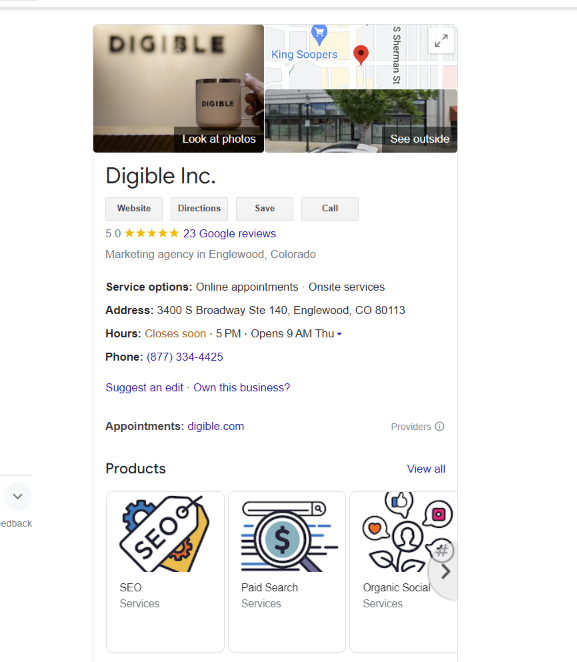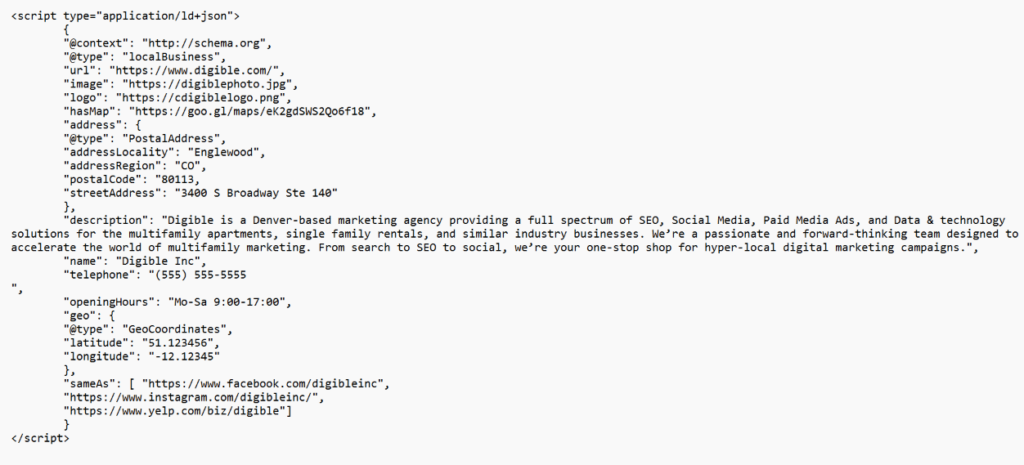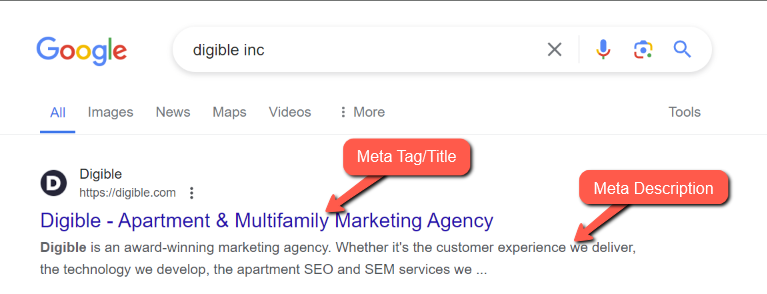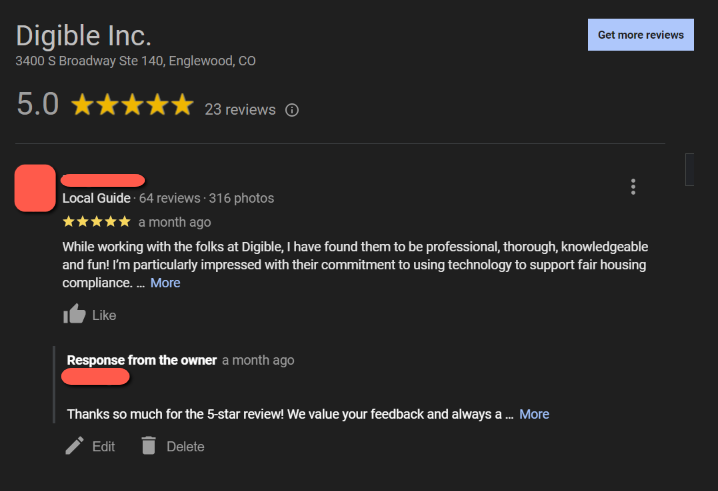Why SEO Matters
Updated June 2024
Googling “SEO best practices” is a slippery slope of massive checklists, jargon, and words that sound like your 5-year-old nephew made them up. With the excessive strategies, hacks, and tips, it’s easy to get confused and even overwhelmed when initially beginning your property’s SEO journey. Every apartment marketing professional would love to be ranked on the first page of Google, but how do you get there? Unfortunately, there’s no magic spell or recipe that pushes your site to #1. But you’re in luck, by strengthening your Local SEO efforts and putting a full strategy into place, you will get discovered by your target audience online and fill those empty units in no time.
Let’s start by asking what is SEO? SEO, or Search Engine Optimization is the art and science of making your website rank higher on search engines like Google, Bing and Yahoo. So, if you want to be considered as an option for those potential renters you need to be visible.
Ways Your Property Can Shine Online
One of the best ways to boost your Local SEO is to have an optimized Google Business Profile and to ensure all of your local listings (think Facebook, Yelp, etc.) are up-to-date with consistent information. Make sure your core business information is the same across your listings to get some good Google lovin’. Without it, you won’t be appearing for prospects searching on Maps or in the search engine results pages (SERPs).

Prepping for NAP Time
Familiar with NAP? No, not a relaxing sleep session we all wish we had more time for, but having the correct Name, Address, and Phone number across Facebook, Google, Yelp, and other online listings. Having the correct information across as many listings as possible will help improve your position and website authority, essentially making your property more discoverable to future renters. When search engines become aware of discrepancies in this basic contact information, like an incorrect phone number, it can negatively impact your local search rankings. Not to mention, it’s confusing and frustrating for prospects trying to reach you! You might be wondering now what you should do with this information. The best way to ensure that your NAP isn’t being slept on (see what we did there), is by implementing the following into your apartment’s SEO strategy.
-
Connect your property to a local listing provider.
There is a plethora of local listing management providers out there (Uberall, Chatmeter, Yext, BrightLocal) to monitor your online listings and ensure that your data is accurate across all the relevant online listings. -
Check that your website’s information is accurate.
You would be surprised to know how many times a property’s address or phone number (and even name sometimes) can be incorrect on the website. This disconnect can make users and search engines lose trust in your property and negatively affect your marketing efforts. -
Implement Local Business schema onto the website.
This type of schema helps search engines recognize your business type and understand your services better. It’s excellent for local SEO because it enhances your location information and clearly defines your property. You will also at times hear this referred to as NAP schema.

Boost Blog Content for Properties
Boost your property’s SEO with relevant and engaging content by creating a community blog! This powerful tool can significantly enhance your website’s visibility and improve your SEO results. Think about what your renters care about:
- Share local points of interest and events, from festivals to popular restaurants, making your blog a go-to resource for neighborhood happenings.
- Keep your community informed about any updates to your property’s amenities, like new fitness centers or pool upgrades, showcasing your ongoing investment in their living experience.
- A regularly updated blog signals to search engines that your site is active and valuable, boosting your rankings. Plus, engaging content keeps visitors on your site longer, improving your SEO performance.
So, start blogging! It’s a fun and effective way to connect with your community, showcase your property, and enhance your SEO efforts all at once. Need help with content creation for your property? Ask our team about our Content Boost Package.
Keyword Espionage
When you think SEO you think keywords, keywords, keywords; so let’s talk about it. Keyword research doesn’t need to be scary. Start off by creating a targeted keyword list that will drive your SEO strategy for your website, with both branded (property name) and unbranded (‘one bedroom in City Park’) keyword phrases. You can probably brainstorm at least 10 or so keywords consisting of your brand name, location, and floorplan options, but don’t stop there. Scope out your local competitors’ listings and sites and see where you may have an opportunity. Your neighbor may rank for ‘luxury’ keywords or enticing amenities but you have a huge sauna AND a secret lounge and bar. Put some of that content out in the universe (and of course on your site) because renters are looking for it. Give the people what they want!
Don’t Let Your Property Get Lost in Mobile Translation
Let’s face it, folks—these days, everyone is glued to their phones. Most apartment searches are happening on mobile devices, not desktop computers. So, it’s time to think mobile-first, not just mobile-friendly. If your site isn’t optimized for mobile, you might as well be handing out flyers in the middle of nowhere. Make sure your potential renters can easily scroll, swipe, and tap their way to finding their dream home. If your site isn’t up to par on mobile, your competitors are just a click (or tap) away. Plus, Google announced that as of July 5, 2024, they will no longer index sites that do not work on mobile. This update further proves that it is essential that your property’s website is mobile-friendly.
Only a Meta of Time
When you search for something on Google, you get a list of results on the search engine results page (SERP). The list consists of a list of multiple big, blue clickable links at the top of each result with a few lines of black text underneath giving a quick summary of what’s on the page. This is referred to as metadata. The blue clickable links are called meta tags/titles. Meta tags/titles are the keywords and phrases that tell search engines what your website is about. They act like a quick guide for search engines, helping them understand the content of your pages. Meta tags/titles are essential to your SEO strategy since they can influence your SERP rankings. Here is Digible’s quick checklist for great meta tags/titles for the multifamily industry:
Include keywords you want to rank for within your meta tags/titles. We recommend adding the property’s location, property name and focus keywords like “apartments”, “rentals”, “townhomes”, etc.
Stay around the recommended title length (55-60 characters and/or pixel width) to avoid the title from being truncated, cutting off your text, and confusing users.
Be concise. Avoid adding irrelevant information to the title if it is not relevant to the page.
Meta descriptions are the short, catchy summaries that appear under your website link in search engine results. They’re like the teaser or blurb giving people a sneak peek into what your page is about and why they should click on it. Unlike meta tags/titles, your descriptions are not technically a ranking factor, yet a well-written meta description can attract more clicks, which tells search engines your site is valuable and should be ranked higher. Here is Digible’s quick checklist for great meta descriptions for the multifamily industry:
Use relevant keywords in this description. Similar to the tag/titles, you want to include applicable keywords that will entice prospects to click on the website.
Stay around the recommended description length (up to 155-160 words or 230 characters on mobile & 300 on desktop).
Explain the page. Remove fluff and give prospects a good idea of what the page is about and insights about life at your property.

Reputation Management & Property Reviews
Encourage customers to leave honest reviews based on their experience with your business—no incentives needed! Genuine reviews help build trust and credibility, which can significantly boost your SEO. More reviews across various platforms signal to search engines that your business is active and reputable. Remember to respond to reviews, both positive and negative, to show you value customer feedback. Engaging with reviews not only enhances your online presence but also fosters customer loyalty. So, start encouraging reviews today and watch your SEO improve as your business reputation grows stronger.
Related Reading: Reputation Management Tips & Best Practices for Reviews

What’s Next for SEO?
Now that you’re ready to hit the ground running with a Local SEO strategy be sure to use this checklist before hitting publish. Using any one of these strategies can help to increase your visibility so it’s time to strap on your SEO hat and get to work.
So are you an SEO expert? Maybe not yet, but hopefully, after reading this you have a better understanding of how SEO works, why you need it, and how it can help your property get more website traffic through Local SEO methods. Plus, the Digible team is here to help, drop us a line about your property’s SEO, and let us take a stab at crafting the perfect SEO strategy for your apartment community!
 $100K Lease-Stakes
$100K Lease-Stakes 





